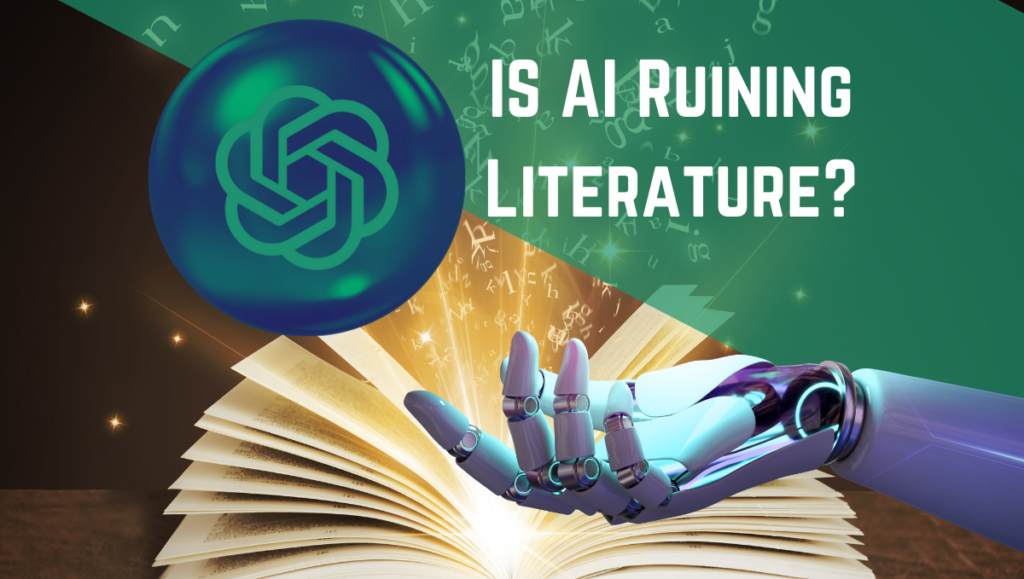The literary world, once ruled by human imagination, now faces a new contender in the form of artificial intelligence. The emergence of AI text generators, such as ChatGPT, has given rise to a new class of literature that can potentially change the entire publishing industry. While some argue that these machines can produce thought-provoking and profound works of literature, others fear that the rise of AI-generated books will be the downfall of the industry as we know it.
The year is 2023, and anyone with a computer and an internet connection can now be an author, a poet, or a playwright. With the help of AI text generators, creating a book can be as simple as typing in a prompt and waiting for the machine to churn out a complete work. Amazon, the world’s largest e-book retailer, has become the main avenue for distributing these AI-written books, with over 200 titles already available for purchase on its Kindle Direct Publishing store.
Furthermore, the lack of transparency surrounding the origin of these AI-generated books raises questions about authenticity and quality. While many writers use the AI software as a tool to aid their creative process, others fail to disclose its use, leading to doubts about the merit of their work. The fear is that this could lead to a decline in quality across the industry, with more authors opting for the quick and easy solution of using AI text generators.
However, the AI-generated literature is not without its supporters. Some argue that it is a promising new frontier, one that has the potential to produce works of great depth and complexity. In fact, AI-generated poetry has already won prestigious literary awards, proving that the machines are capable of producing poetry that can move and inspire its readers.
Yet, there is something to be said about the inherent danger of machines taking over the realm of creative expression. The danger of algorithmic creativity is that it could homogenize literature, with books lacking originality and diversity. Creativity, after all, is a fundamental human trait, one that is shaped by our unique experiences and perspectives. The question is whether AI text generators can truly replicate this, or if they will only produce copies of what has come before.
In this new literary landscape, authors may soon find themselves replaced by machines, and readers may find their enjoyment of literature diminished by the rise of low-quality, AI-generated content.
Furthermore, the widespread adoption of AI-written books may threaten the very foundation of the publishing industry. Many publishing houses have traditionally served as gatekeepers, ensuring the quality and authenticity of the books they choose to publish. But with AI-generated content flooding the market, this system may soon be rendered obsolete.
As it stands, there are currently over 200 e-books available on Amazon’s Kindle store that list “ChatGPT” as an author, with many more likely to be hidden among the plethora of other self-published e-books. The software’s ability to quickly generate blocks of text from simple prompts has already been exploited by self-professed “authors” who use it to create illustrated children’s books and novellas.
While some may argue that the democratization of the publishing industry is a good thing, as it allows for more voices to be heard, the lack of quality control and authenticity surrounding AI-generated books presents a significant problem.
Moreover, the use of AI-generated content presents a significant threat to the livelihoods of professional authors. As the industry becomes flooded with low-quality, cheaply-produced books, it will become increasingly difficult for established authors to make a living from their craft. The publishing industry has already seen significant job losses in recent years, and the rise of AI-generated content threatens to exacerbate this trend.
Furthermore, the widespread adoption of AI-written books may ultimately lead to a decline in the quality of literature. While the technology may be able to produce coherent blocks of text, it lacks the creativity, originality, and nuance of human writers. Literature is not merely a means of conveying information; it is a means of exploring the human experience, of pushing boundaries, and of challenging readers. AI-generated content may be able to mimic the style and structure of human writing, but it cannot replicate the depth of emotion and meaning that human writers are capable of.
In the end, the rise of AI-written books presents a cautionary tale of the potential dangers of technological progress. While AI technology may offer a plethora of benefits, it must be used responsibly and ethically. The publishing industry must be mindful of the impact that AI-generated content may have on the industry and its stakeholders and must take steps to ensure that the industry continues to value quality, creativity, and authenticity. Only by doing so can we ensure that literature continues to be a meaningful and enriching part of our lives.

